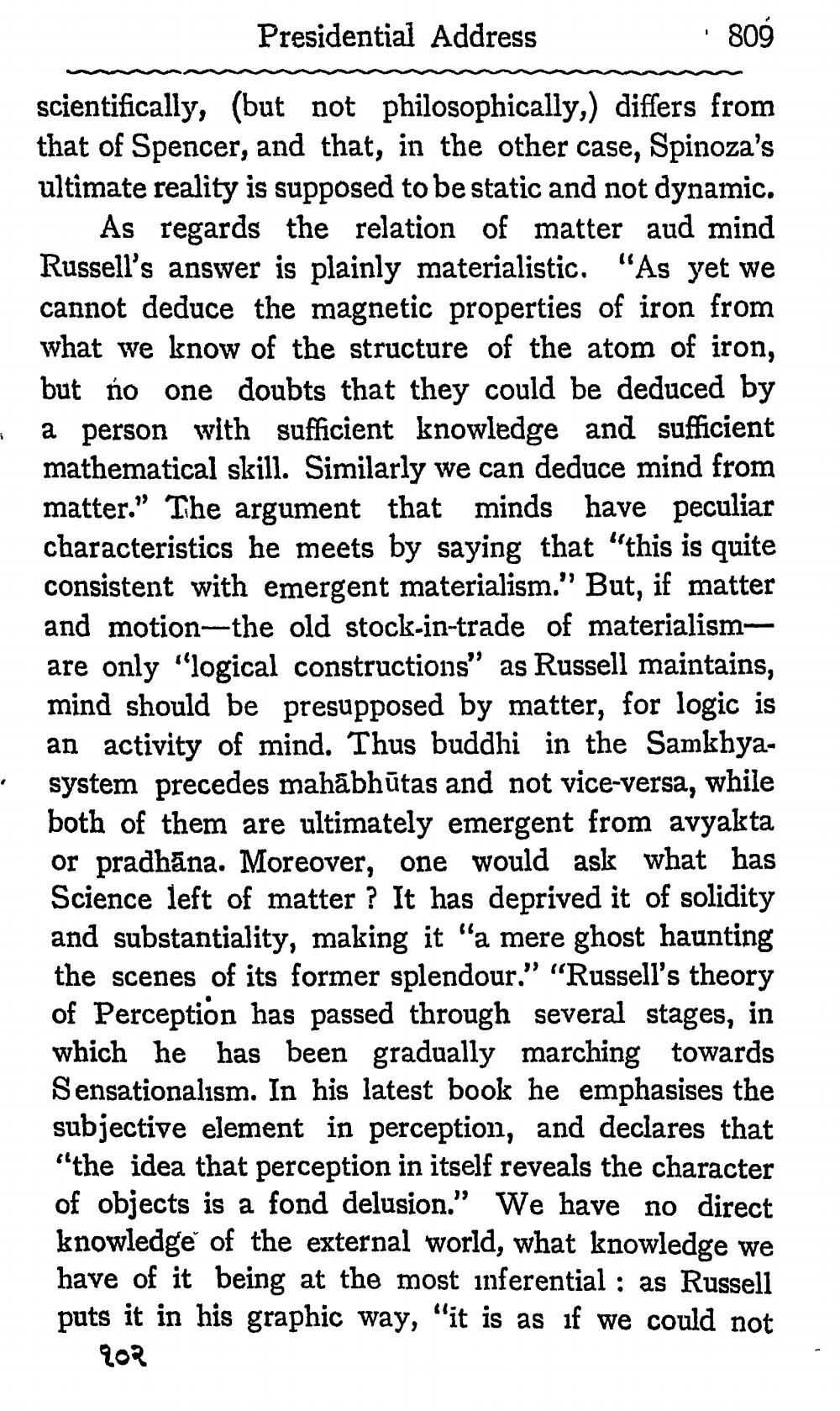________________
Presidential Address
.809
scientifically, (but not philosophically,) differs from that of Spencer, and that, in the other case, Spinoza's ultimate reality is supposed to be static and not dynamic.
As regards the relation of matter aud mind Russell's answer is plainly materialistic. "As yet we cannot deduce the magnetic properties of iron from what we know of the structure of the atom of iron, but no one doubts that they could be deduced by a person with sufficient knowledge and sufficient mathematical skill. Similarly we can deduce mind from matter." The argument that minds have peculiar characteristics he meets by saying that "this is quite consistent with emergent materialism." But, if matter and motion-the old stock-in-trade of materialismare only "logical constructions” as Russell maintains, mind should be presupposed by matter, for logic is an activity of mind. Thus buddhi in the Samkhyasystem precedes mahābhūtas and not vice-versa, while both of them are ultimately emergent from avyakta or pradhāna. Moreover, one would ask what has Science left of matter? It has deprived it of solidity and substantiality, making it "a mere ghost haunting the scenes of its former splendour." "Russell's theory of Perception has passed through several stages, in which he has been gradually marching towards Sensationalism. In his latest book he emphasises the subjective element in perception, and declares that "the idea that perception in itself reveals the character of objects is a fond delusion." We have no direct knowledge of the external world, what knowledge we have of it being at the most inferential : as Russell puts it in his graphic way, "it is as if we could not
૧૦૨




